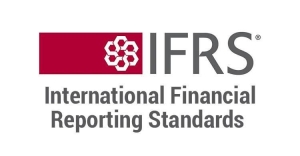عرض العناصر حسب علامة : IFRS S2
الثلاثاء, 11 يوليو 2023 07:29
ندوة عبر الانترنت لشرح معيار IFRS S1 و IFRS S2
معلومات إضافية
- البلد عالمي
- نوع الفعالية مجانا
- بداية الفعالية الأربعاء, 12 يوليو 2023
- نهاية الفعالية الثلاثاء, 18 يوليو 2023
- التخصص محاسبة ومراجعة
- مكان الفعالية اون لاين
نشر في
فعاليات مهنية
الإثنين, 27 فبراير 2023 08:41
تقترب معايير الاستدامة الدولية الأولى من خط النهاية
أعلن مجلس معايير الاستدامة الدولية أن المعيار الدولي لإعداد التقارير المالية S1 والمعيار الدولي لإعداد التقارير المالية S2 سيصدران في يونيو وسيسريان لبعض الشركات في عام 2024.
معلومات إضافية
-
المحتوى بالإنجليزية
Last week at the inaugural IFRS Sustainability Symposium in Montreal, the International Sustainability Standards Board (ISSB) wrapped up deliberations on its first two sustainability standards aimed at creating a global baseline, announcing plans to release IFRS S1 and IFRS S2 in June with an effective date of January 2024.
"It's a very special day," ISSB Chair Emmanuel Faber said at the event, sponsored by AICPA & CIMA, together as the Association of International Certified Professional Accountants. "We are ending a board week that we spent here, where we completed the review of our S1 and S2 standards — officially, after more than 20 sessions of redeliberation, based on the feedback we received from [1,400] letters of comments, many of them coming from you in the audience here."
The ISSB, formed by IFRS in 2021, organised more than 300 outreach events in the two months leading up to the announcment, Faber said.
"None of this would have been possible without basically the continuous momentum that we felt from this room and many other rooms around the world, that there is a need to address the fact that business cannot be as usual and therefore accounting cannot be as usual," Faber said. "We need to change. We need to change because civil society consensuses are changing fast, because world politics are changing fast, because the world is changing, because the planet is changing."
Following the announcement, the International Organization of Securities Commissions (IOSCO) announced its support and its plans to complete an independent review of the standards by the end of the calendar year. In addition, a joint statement from the International Ethics Standards Board for Accountants and the International Auditing and Assurance Standards Board applauded the IFRS annoucement as well as the IOSCO statement, adding that, "We will continue to work closely with all parties as we develop our sustainability standards."
Sue Lloyd, ISSB vice chair, added that the board is "working with our friends at the SEC to keep an eye on what they're doing and what we're doing, and looking for ways to make sure we've got the most consistency possible."
The SEC is expected to release its final rule on climate-related disclosures this spring, about a year after first releasing the proposal.
ISSB leaders said at the symposium that the IFRS will prioritise helping affected parties tackle the challenges associated with implementing the new standards. While Faber discussed how the new standards could drive competitive advantages over time, Lloyd shared her belief that the common language created by a global baseline could lead to its own set of dividends.
"I hope that our global baseline facilitates that," Lloyd said. "Even if there are particular jurisdictional compliance requirements, that if that's built from the global baseline, there are real efficiency benefits.
"It's not only for investors, which is important, but I think when there's also a real efficiency and cost benefit for companies, that's when it's a real winning formula."
The formula has changed, and it continues to evolve. And, according to the head of AICPA & CIMA, the accounting profession must continue to evolve as well.
"The expectations of business is changing so dramatically," said Barry Melancon, CPA, CGMA, the CEO of AICPA & CIMA. "If you think about the history in the modern business evolution, what governments required a business was essentially two things: They required them to pay their taxes, and they required them to provide certain financial information to the government. We could go back in history and, for decades, that was the basic pretence.
"But today, government and multi-stakeholders, investors, and others are requiring a much broader set of information. What is the strategy? How does it connect? What are the weaknesses? What are the positives? Where is the connectivity? That's really what the framework of integrated reporting is all about."
Melancon continued: "The notion is, 'How do we create this framework?' A rationalised framework that's not competing with 100 or 200 or 400 [frameworks] … so that the business information flows and strategies and risks are consistently applied with reliability that comes with that process."
نشر في
محاسبة و مراجعة


